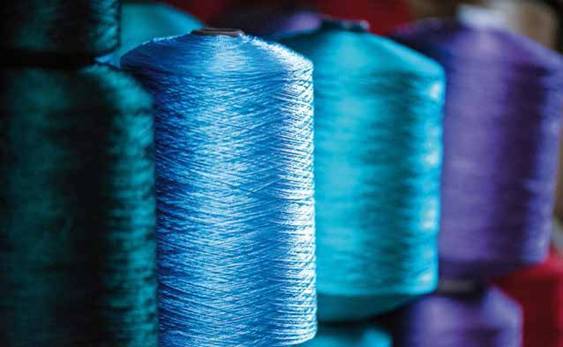Bangladesh Textile Mills Association (BTMA) urged the government to further reduce VAT on man-made fibre yarn and withholding tax to help face the challenges amid the Covid-19 pandemic and the global economic downturn.
BTMA observed that the global spread of the corona virus pandemic and the consequent global economic downturn have severely damaged the financial viability of the country’s overall manufacturing sector, including all the export-oriented textile mills and local textile mills.
It also demanded that the existing alternative cash assistance be increased by 6.0 per cent for 6 months using local yarn on FOB Value.
The proposed 0.5 per cent withholding tax on export prices of all types of readymade garments will be challenging for the textiles and clothing industry to survive in the international market in the Covid-19 context.
Mohammad Ali Khokon, BTMA president, requested the government to continue the existing 0.25 per cent withholding tax in the coming fiscal.

Local textile mills that meet the local yarn demand lost the Pahela Boishakh, Eid-ul-Fitr and Zakat market worth of Tk 200 billion due to the government’s announced general holidays, he said.
To compensate the loss, BTMA proposed to waive VAT on all kind of yarn, he said, welcoming the budget proposal for reducing it to Tk 3.0 from the existing Tk 4.0. But a fixed Tk 6.0 ad valorem VAT has been proposed to impose on man-made fibre produced yarn, which won’t benefit the related textile mills, Mr Khokon said.
“The textile mills are suffering due to the dearth of the export orders of yarn and buyers,” he said requesting the government to reconsider the proposal and impose Tk 2.0 ad valorem VAT on every man-made fiber produced yarn.
For tackling and overcoming the financial crisis due to the corona virus pandemic, the BTMA requested to increase the existing alternative cash assistance to 10 per cent from 4.0 per cent for six months using local yarn on FOB value to compensate for the loss faced by the export-oriented textile mills because of the aggressive promotional strategy taken by the competing countries.
Terming the proposal to automate bonded warehouse management for accelerating the manufacturing activities of the export-oriented industry ‘positive’, he said this will help reduce the cost of business.
He, however, said the proposed tax holiday facility in the budget will increase investment and encourage the establishment of artificial man-made fibre manufacturing Industry.
The BTMA president termed the proposed continuation of incentives and reduction of some taxes to overcome the financial crisis to keep the industry afloat ‘very positive and appreciable’.He, however, said the proposed reduction in the tax rate of non-listed companies from 35 per cent to 32.5 per cent will be helpful.
The BTMA requested to consider its proposals to change the tariff structure of some HS coded fabric to stop unethical trade and to protect the fair interests of the domestic industry.

